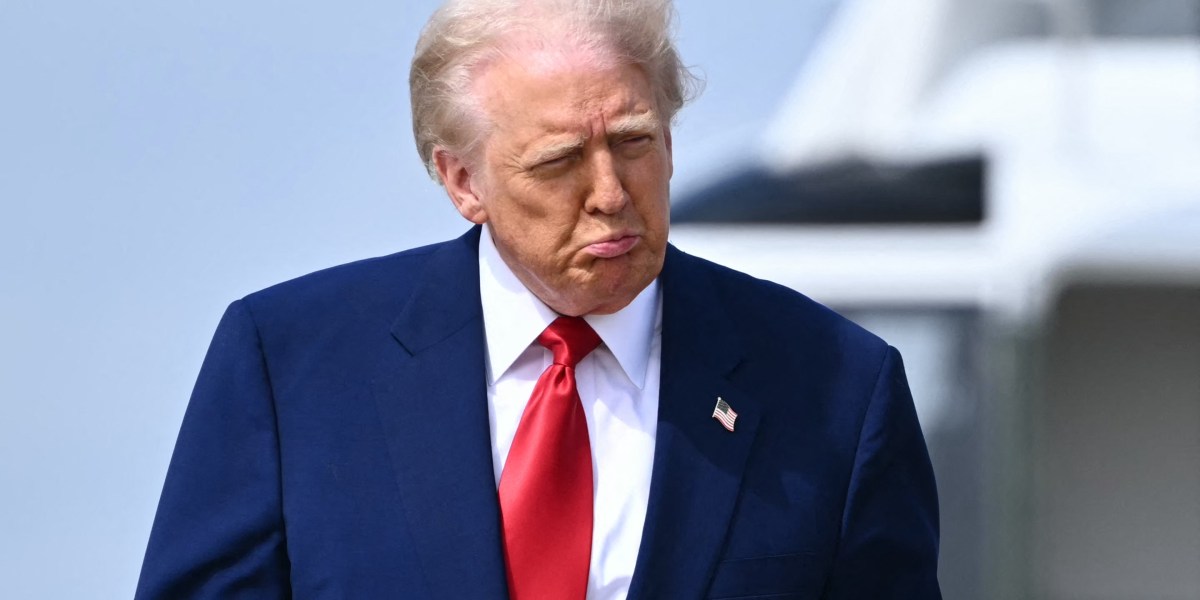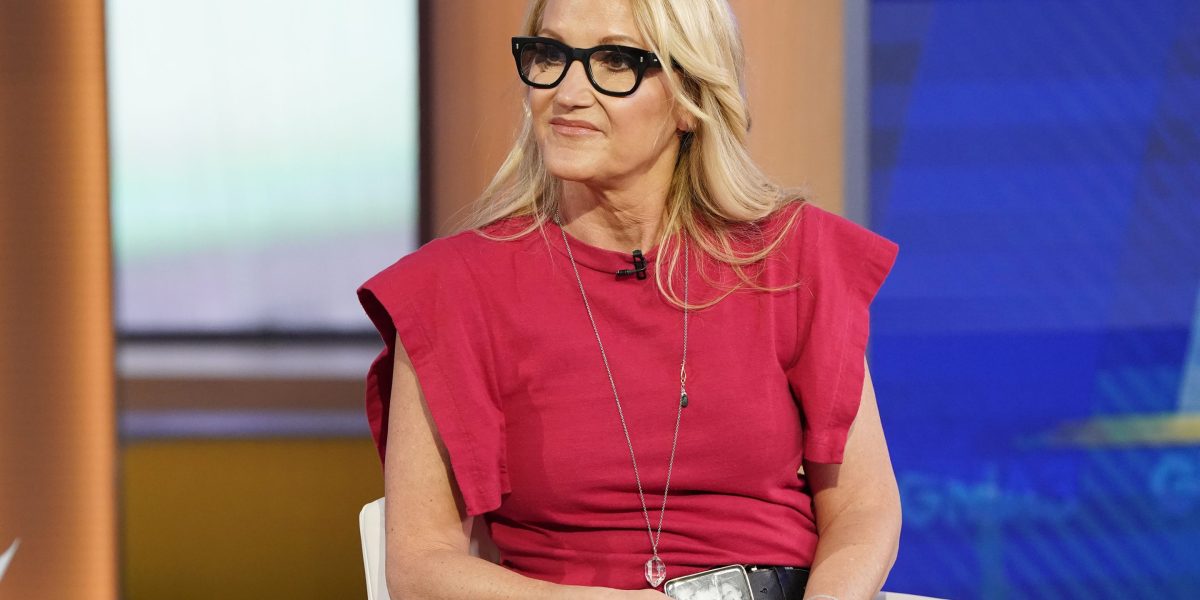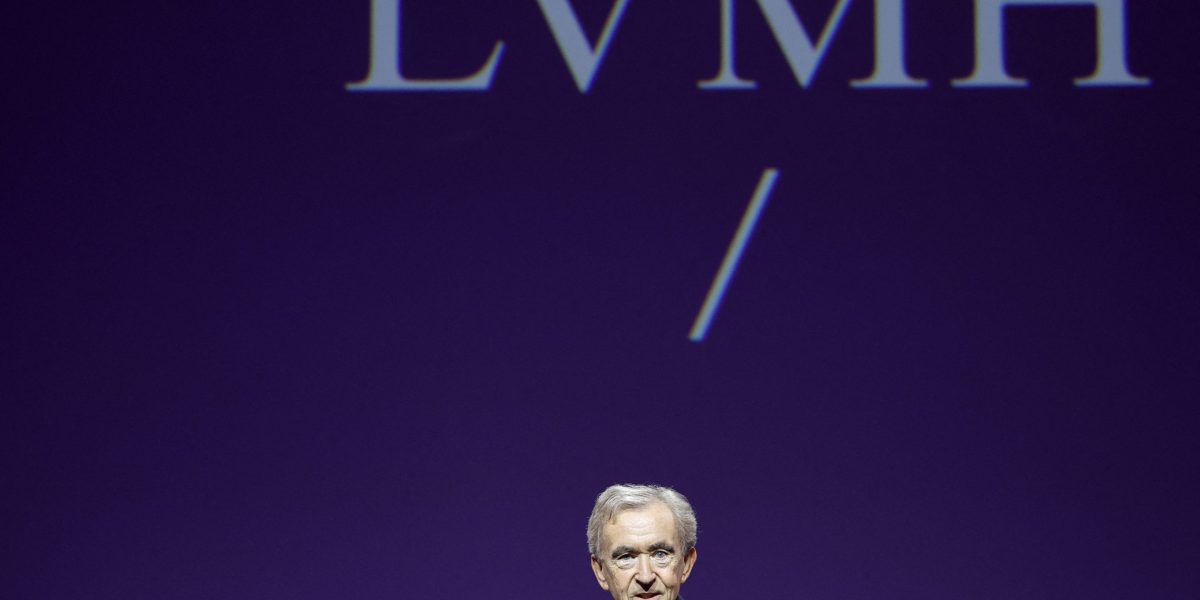LVMH, the Paris-based luxury giant, reported €20.3 billion ($23 billion) in revenue in Q1 2025, down 3% year over year. The figures slipped short of the 2% growth forecasted by VisibleAlpha consensus estimates.
As in past quarters, the wine and spirits division with Moët & Chandon and Veuve Clicquot brands led the decline by 9% year-over-year. Meanwhile, watches and jewelry, which includes Tag Heuer and Bulgari, was the only segment not to decline in organic terms, remaining flat for the first quarter.
The biggest topic on the minds of companies globally is tariffs, which went from being threats to an all-encompassing policy earlier in April before President Donald Trump dialed back on them. During LVMH’s earnings call, the company said that despite the tariff-related uncertainty, American demand remained strong during the first quarter.
“After years of exceptional growth, the best way through [a] downturn cycle is to stay focused. It is also a time to demonstrate our agility and capacity to adjust and react,” LVMH CFO Cecile Cabanis said.
She added that the company hasn’t seen a significant impact from tariffs yet, although she conceded that the “aspirational clientele is always more vulnerable in less positive economic cycles.”
LVMH chairman and CEO Bernard Arnault previously underplayed the negative shock of tariffs on the French company, touting the U.S. as “welcoming.” Arnault, who had a front-row seat at Trump’s inauguration presidential ceremony earlier this year, said he was “seriously considering” making more of the group’s luxury goods available in the States.
“It’s clear that we are being strongly pushed by the American authorities to continue to build out our presence. In the current context, this is something that we’re looking at seriously,” Arnault said earlier this year, according to Reuters.
LVMH employs 40,000 people in three Louis Vuitton factories.
Cabanis said most of what the company makes in the U.S. is for the American market—but not all of it. That gives LVMH a bit more room to maneuver.
The French conglomerate, which owns over 75 brands and is considered the sector’s bellwether, has been slow to recover from the drop in demand for luxury goods. This became clear with the company’s 2024 sales, which fell 2% to $88 billion, even as fourth-quarter revenues improved by 1%.
Still, a few signs of recovery emerged thanks to a strong shopping appetite in Japan and the U.S., which account for 9% and 25% of LVMH’s sales, respectively.
LVMH is the first major luxury group to release first-quarter results, setting the tone for what the rest of the sector could face. The company’s shares have tanked 17% since the start of 2025, while Arnault’s net worth has plummeted $15 billion during the same period.
A luxury rebound? Not yet
Despite a rocky couple of years, the luxury market hoped to turn a corner this year, with the worst highs of inflation and interest rates in the rear-view mirror. That would’ve also helped European players, as shares in luxury companies have fallen 8.5% year-to-date.
American consumers would have been the saviors, ultimately pulling the sector out of its slump by late 2025 or 2026, as McKinsey’s luxury lead Gemma D’Auria pointed out in a January report. However, with President Donald Trump announcing a slew of tariffs, a recovery appears nowhere in sight anymore.
American luxury consumption could “have been sufficient to overcome expected weakness in Chinese and European luxury demand but now seems unlikely: the nth order impact of recently announced average U.S. import tariffs of ~23% (even after accounting for President Trump’s recent rollback) and a looming trade war on the global economy have yet to be seen,” Bernstein SG analyst Luca Solca said in a note Monday.
Such volatility could impact LVMH the worst as it’s among the most exposed companies to the U.S.
Luxury goods are made in France and Italy, and high-end watches are Swiss-made. These countries now face a 10% tariff on trade—lower than Trump’s initial levies but still higher than before.
Analysts fear the most how tariffs will affect consumer sentiment if luxury giants pass on additional costs to shoppers. A recession could also spook people enough to avoid spending thousands of euros on bags and shoes.
“A recession is bad for luxury, as consumers spending money on luxury need to experience feelgood. Hence, you will see that the luxury goods industry is cyclical. And LVMH is the best proxy of the industry – hence facing headwinds in a recession,” Solca told Fortune in an email.
HSBC now expects organic luxury sales to be flat this year, compared to earlier estimates of a 5% year-over-year increase, the Financial Times reported.
This story was originally featured on Fortune.com
Source link


 Entertainment8 years ago
Entertainment8 years ago
 Politics8 years ago
Politics8 years ago
 Entertainment8 years ago
Entertainment8 years ago
 Entertainment8 years ago
Entertainment8 years ago
 Tech8 years ago
Tech8 years ago
 Tech8 years ago
Tech8 years ago
 Tech8 years ago
Tech8 years ago
 Politics8 years ago
Politics8 years ago






